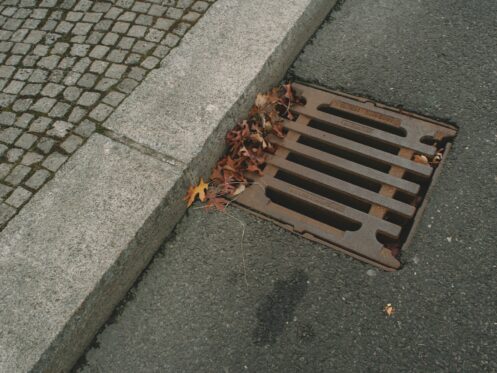Keeping your sewer lines in good condition is much more than just a maintenance task. It helps ensure a healthy and functional environment in your home. Sewer lines are responsible for carrying wastewater away, keeping your living space clean and safe. Neglecting them can lead to unpleasant surprises, like clogs or backups. For residents of Port St. Lucie, understanding how to care for these essential components of your plumbing system can save you time and hassle in the long run.
Port St. Lucie boasts a warm and humid climate, which can influence how you maintain your sewer lines. With the changing seasons, adapting your maintenance routine becomes even more crucial. It isn’t just about avoiding costly repairs—it’s also about improving the overall comfort and efficiency of your home. By taking preventive steps and staying attentive to potential issues, you can ensure your sewer lines stay in tip-top shape all year round.
Understanding Your Sewer Line
Sewer lines play a vital role in your home’s plumbing system. They efficiently transport wastewater from your house to the municipal sewage system or a septic tank. Understanding this basic function helps in recognizing the significance of regular maintenance. When sewer lines work smoothly, they ensure that waste is out of sight and out of mind, allowing your household to run without a hitch. But what happens when things don’t work as intended?
Without proper attention, several issues may arise with sewer lines. Clogs are one of the most common problems, often caused by unsuitable items being flushed or grease buildup over time. Tree roots are another culprit, as they can invade sewer pipes in search of moisture, leading to blockages and cracks. Even changes in terrain or shifts in soil can affect the integrity of your sewer lines, potentially leading to leaks or breaks. For Port St. Lucie residents, the moisture-heavy Florida climate might increase the likelihood of some of these issues.
To prevent these common headaches, recognizing what could go wrong is half the battle. For example, when debris or non-flushable items block the passage in the sewer line, it can cause wastewater to back up into your home. This can lead to unpleasant odors and possibly damage property items. By understanding the way your sewer line works and keeping an eye out for these warning signals, you can tackle issues before they turn into costly repairs.
Regular Inspections
Regular inspections are key to maintaining your sewer line’s health. By consistently checking your system, you can catch small problems before they escalate. Inspections can identify potential blockages or weaknesses in your pipes, providing a proactive approach to plumbing maintenance. The advantage of regular checks is like giving your plumbing a health check-up, ensuring everything functions optimally without unexpected hiccups.
So, how often should you inspect your sewer lines? As a good rule of thumb, schedule an inspection at least once a year. During these inspections, focus on spots where issues commonly arise. Look for signs of leaks, such as wet patches in the yard, slow drainage, or unusual sounds from pipes. If you have large trees near your sewer line, more frequent checks may be necessary since roots can invade pipes.
Remember, these inspections aren’t just for finding existing problems. They serve as a reminder to maintain good practices, like avoiding pouring grease down the drain or flushing unsuitable items. By investing time in regular check-ups and collaborating with professionals when needed, you can keep your sewer system in optimal condition, ensuring smooth operation and avoiding the stress of unexpected repairs.
Preventative Maintenance Tips
Taking the right preventative steps helps keep your sewer lines in top shape all year round. These measures go a long way in preventing the buildup of debris and avoiding unexpected plumbing issues.
1. Mind What You Flush: Only flush waste and toilet paper down the toilet. Items like wipes, paper towels, and feminine hygiene products can lead to blockages.
2. Avoid Pouring Grease Down the Drain: Grease can harden within pipes, causing stubborn clogs over time. Let it cool and dispose of it in the trash instead.
3. Use Enzyme Cleaners Regularly: These cleaners help break down organic material, keeping pipes clean. It’s a simple task that can be done monthly.
4. Install Drain Screens: Screens help catch hair and small debris, reducing the chances of them going down and clogging the sewer lines.
5. Inspect Downspouts in Rainy Seasons: Ensure they’re directed away from your foundation. Water pooling near your foundation can saturate the ground and cause pipe shifts.
The climate in Port St. Lucie can exacerbate certain plumbing issues, especially with the increased rainfall in certain months. Adopting seasonal maintenance tips, like checking gutters and downspouts during the rainy season, can prevent challenges from getting out of hand. By following these guidelines, you’ll maintain a smoother plumbing system and avoid potential disruptions.
Signs of Sewer Line Problems
Recognizing the signs of trouble early can save you from a lot of stress and repair costs down the road. Here are common indicators that your sewer line might need attention:
– Slow Drains: If you notice water taking a long time to drain from sinks or tubs, it could signal a blockage.
– Foul Odors: Unpleasant smells coming from drains are not normal and usually point to a sewer line issue.
– Unusual Noises: If you hear gurgling sounds from your toilet or drains, it could mean there’s trapped air from a blockage.
If you notice any of these signs, act quickly. Delaying might lead to larger, more frustrating issues. It’s wise to contact a professional who can diagnose the problem accurately and offer the best solutions.
When to Call a Professional
Sometimes, sewer line problems can be tricky, and that’s when calling in the experts becomes necessary. Certain situations demand immediate professional intervention:
– Persistent Problems: If you’ve tackled a problem but it keeps returning, you may need a thorough inspection.
– Visible Water Damage: Water pooling in the yard or areas of your home might indicate a serious leak requiring immediate attention.
– Backflow Issues: When water backs up through your drains, it’s a strong indication of a major clog or damage.
Calling an expert not only resolves existing problems but also prevents potential problems from becoming disasters. Professionals can assess the situation accurately and make sure your plumbing system stays in good working order.
Ensuring Longevity of Your Sewer Line
Taking small steps towards regular maintenance and paying attention to potential problems early ensures that your sewer lines have a long lifespan. By staying mindful of what gets washed down your drains, and being proactive about inspections, you can keep your plumbing running smoothly for years to come.
In the ever-humid environment of Port St. Lucie, managing your sewer line efficiently becomes a bit of an art. Regular care and keen observation mean fewer problems and more peace of mind for you. Knowing when to seek expert advice ensures that your home’s plumbing system remains reliable and effective. A little attention now can truly make a big difference later on.
Regular upkeep and early attention to your plumbing system’s needs can extend the life and function of your sewer line in West Palm Beach. If you notice any issues discussed in the article, or if you simply want peace of mind, contact Legacy Plumbing Experts to ensure your plumbing system is in top condition. To learn more about maintaining an efficient sewer line in West Palm Beach, explore the services offered by trusted professionals in your area.

